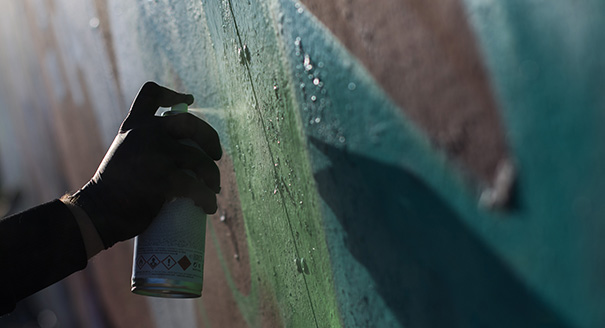A recent offensive by Damascus and the Kurds’ abandonment by Arab allies have left a sense of betrayal.
Wladimir van Wilgenburg
{
"authors": [
"Dalia Ghanem",
"Loulouwa Al Rachid",
"Sabri Benalycherif"
],
"type": "commentary",
"blog": "Diwan",
"centerAffiliationAll": "",
"centers": [
"Carnegie Endowment for International Peace",
"Malcolm H. Kerr Carnegie Middle East Center"
],
"collections": [
"Arab Spring 2.0"
],
"englishNewsletterAll": "",
"nonEnglishNewsletterAll": "",
"primaryCenter": "Malcolm H. Kerr Carnegie Middle East Center",
"programAffiliation": "",
"programs": [
"Middle East"
],
"projects": [],
"regions": [
"Levant",
"Maghreb",
"North Africa",
"Lebanon",
"Algeria",
"Middle East"
],
"topics": [
"Political Reform"
]
}
Graffiti by protestors in Algiers and Beirut shows their desire to take control of public space.
At the Carnegie Endowment’s website, Dalia Ghanem, Loulouwa al-Rachid, and Sabri Benalycherif have just published a very interesting photo essay on the graffiti of protesters in Algiers and Beirut, where large demonstrations have taken place this year against the countries’ respective governments and political systems. Describing the graffiti, the authors write that “Some evoke the past to illustrate a long history of suffering, while others use metaphors and name-calling to unite people against their ‘oppressors.’” A more profound aim in posting graffiti, they argue, is that for protesters, “in both countries, graffiti art subverts state control and takes back the public space.”
Carnegie does not take institutional positions on public policy issues; the views represented herein are those of the author(s) and do not necessarily reflect the views of Carnegie, its staff, or its trustees.
A recent offensive by Damascus and the Kurds’ abandonment by Arab allies have left a sense of betrayal.
Wladimir van Wilgenburg
Israeli-Lebanese talks have stalled, and the reason is that the United States and Israel want to impose normalization.

Michael Young
The government’s gains in the northwest will have an echo nationally, but will they alter Israeli calculations?

Armenak Tokmajyan
Beirut and Baghdad are both watching how the other seeks to give the state a monopoly of weapons.
Hasan Hamra
The country’s leadership is increasingly uneasy about multiple challenges from the Levant to the South Caucasus.

Armenak Tokmajyan